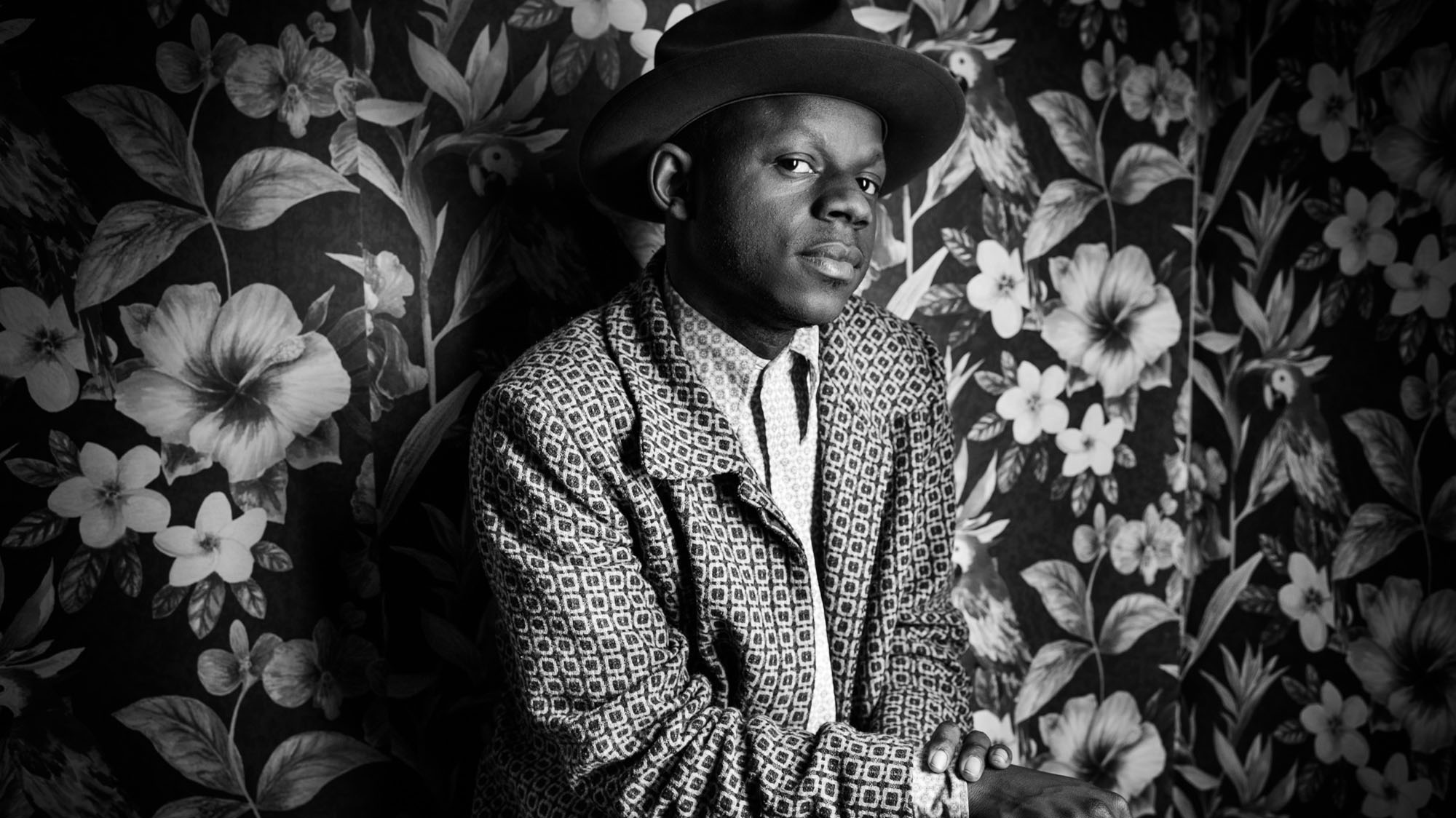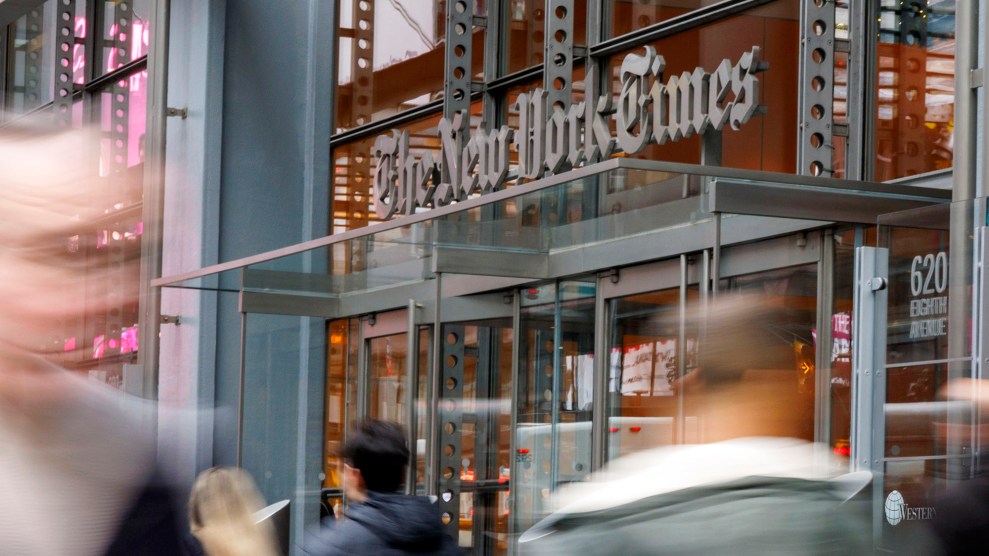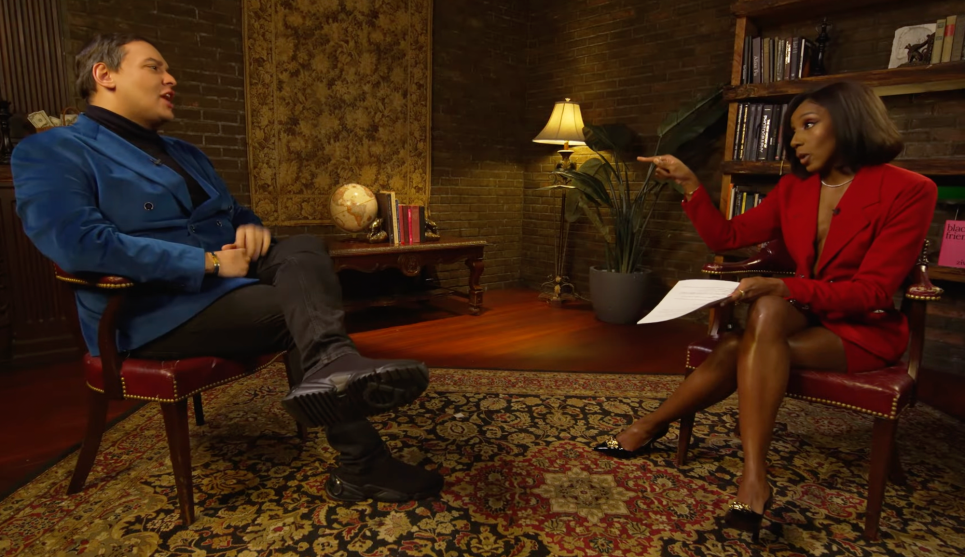Six years ago, Kenyan folk singer J.S. Ondara left his home country behind to live with an aunt in Minneapolis and pursue his dream of becoming a musician. Though he was wholly unprepared for the windchills of the northern Midwest, he’s been able to channel his experience as a stranger in a strange land into his music and adjust to life in America.
The 26-year-old artist released his debut album, Tales of America, in February, which leverages his unease as an outsider into an album full of romantic storytelling—Ondara counts Bob Dylan as a major influence—but with a sound all his own.
We caught up with Ondara at Rough Trade in Williamsburg, where he made the second stop on his US and European tour.

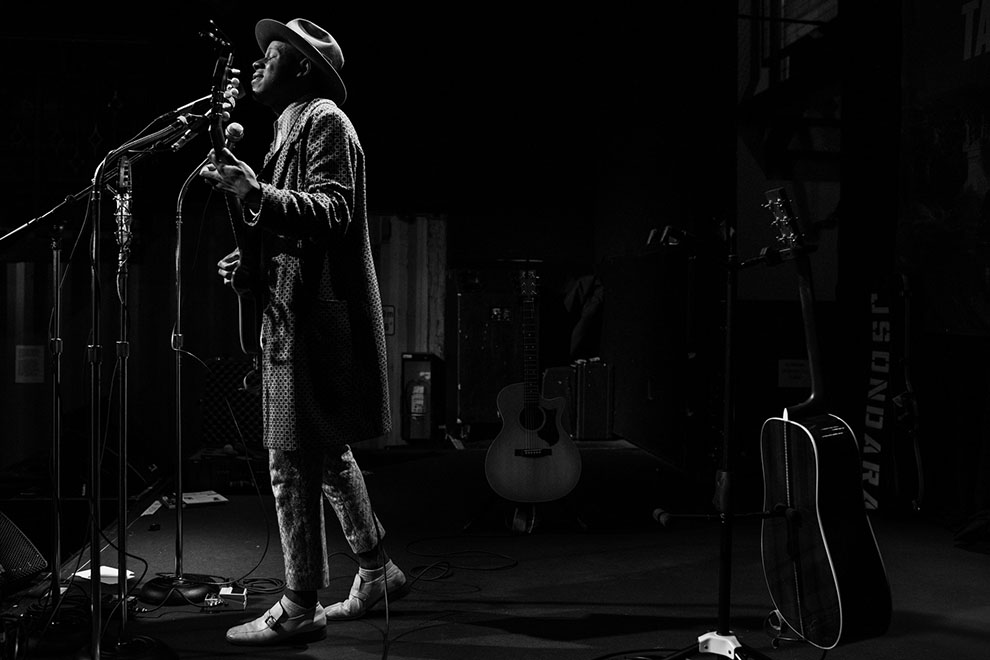
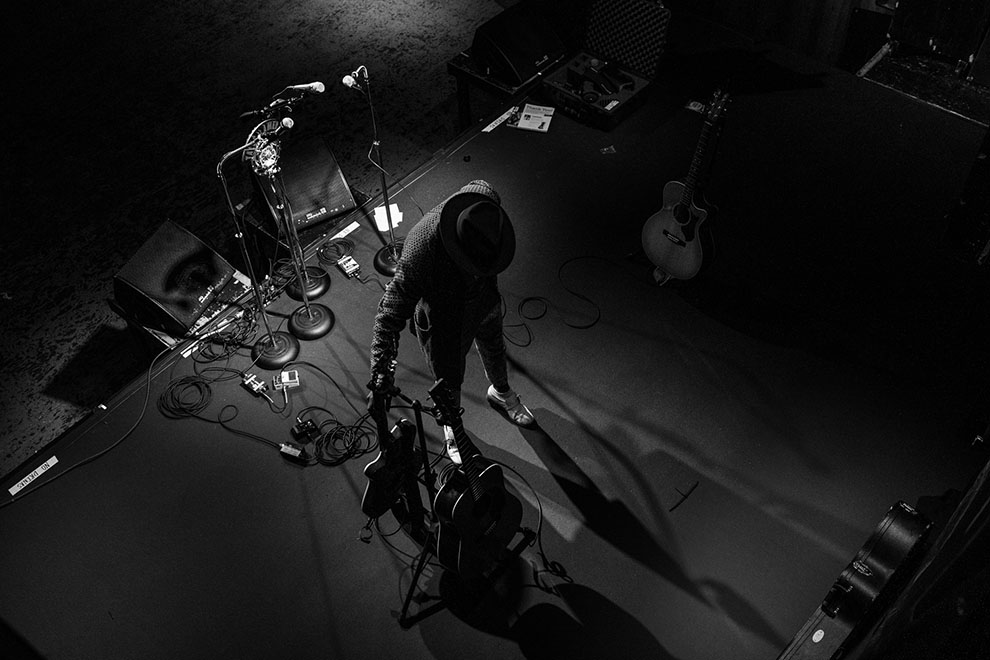
Onstage, Ondara presents himself as a traveling bard. He dresses in natty clothes, his guitar cases are stenciled with his name and strategically left leaning on the back edge of the stage, and a couple of dummy microphones are placed next to the real one, hearkening back to folk festivals of yore.
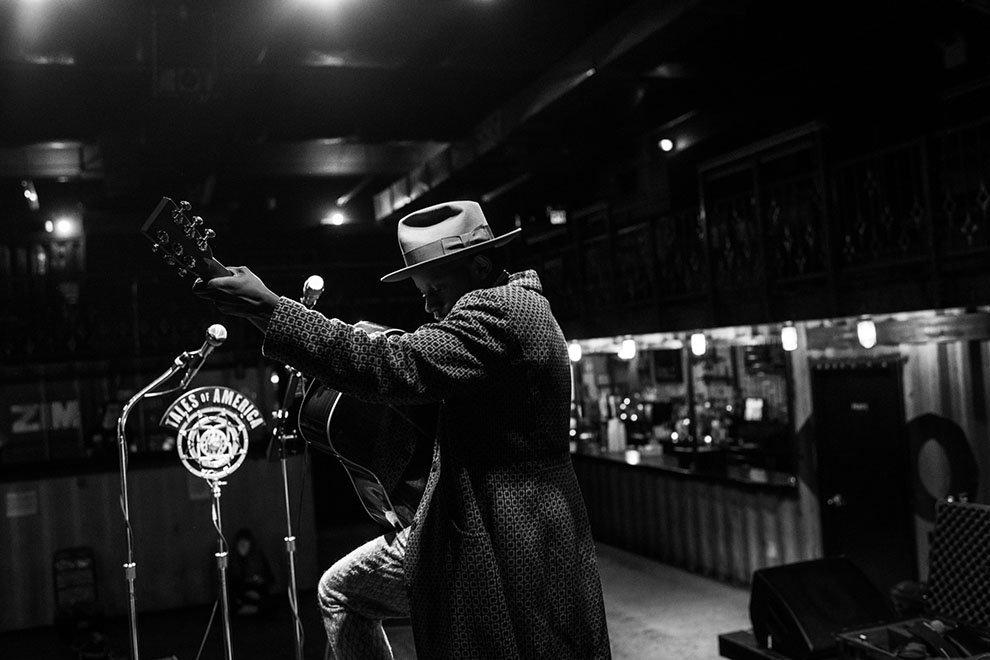
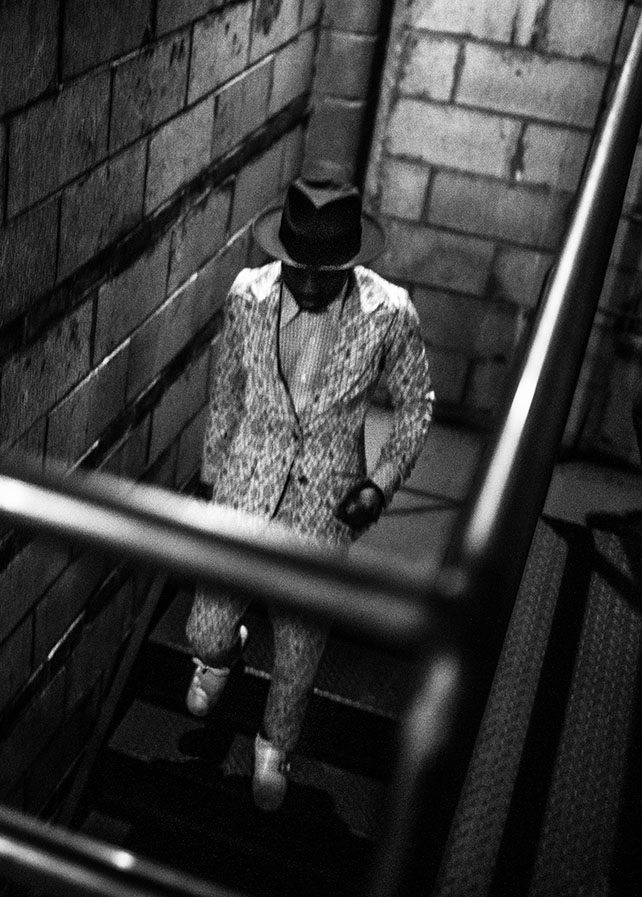
His voice, which has British-Kenyan inflections and earthy tones, often reaches up into a high, feminine falsetto. When he takes the stage for soundcheck, his presence has a centering effect on the room. Department heads from his record label, Verve Folkways, who have been fluttering about with preparations, become sharply attentive. Toward the end of the performance later, I spot a young woman wiping a tear from her eye.
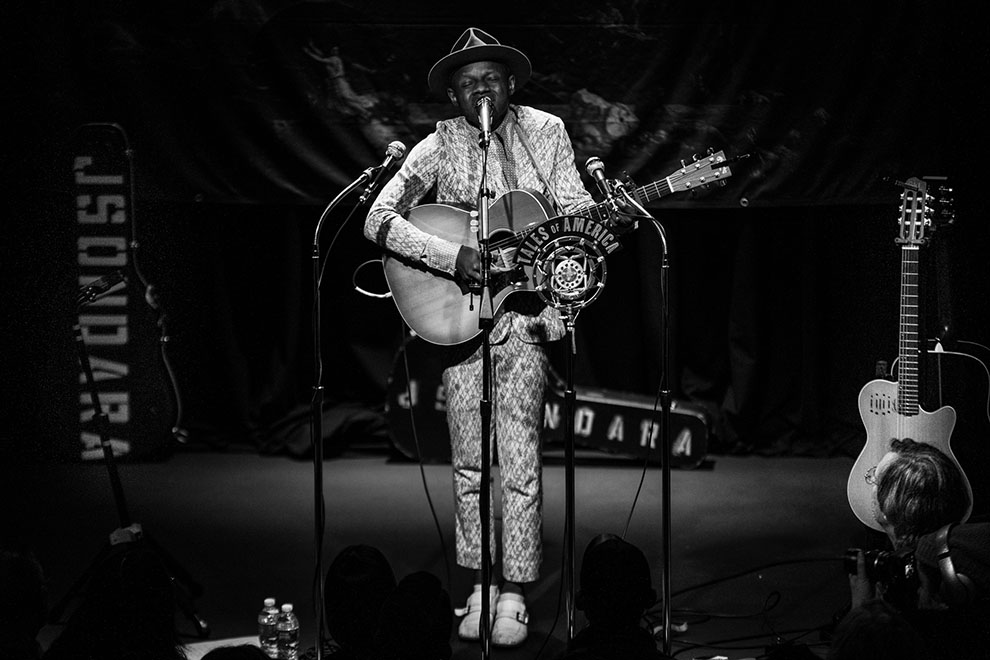
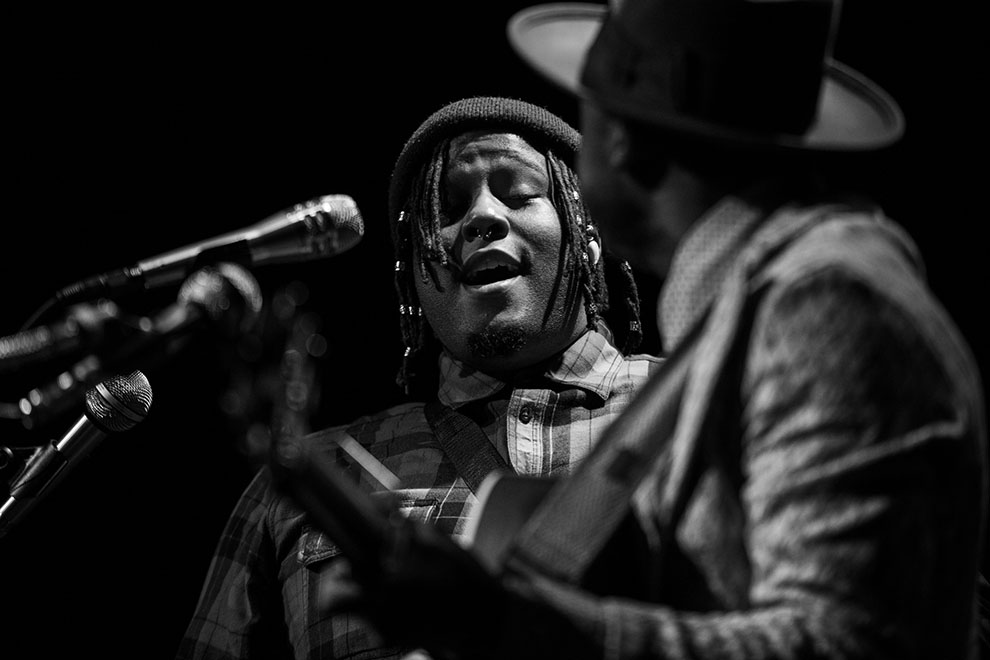
In his introduction for the song “Turkish Bandana,” which he sang a cappella, Ondara explained that he never had access to instruments when he was growing up in Kenya, so he constructed songs purely vocally. Between songs, Ondara speaks fondly of his gently meddling, protective mother, who regularly chides him about his eating habits and asks him when he plans on settling down with a nice girl and getting a regular job.
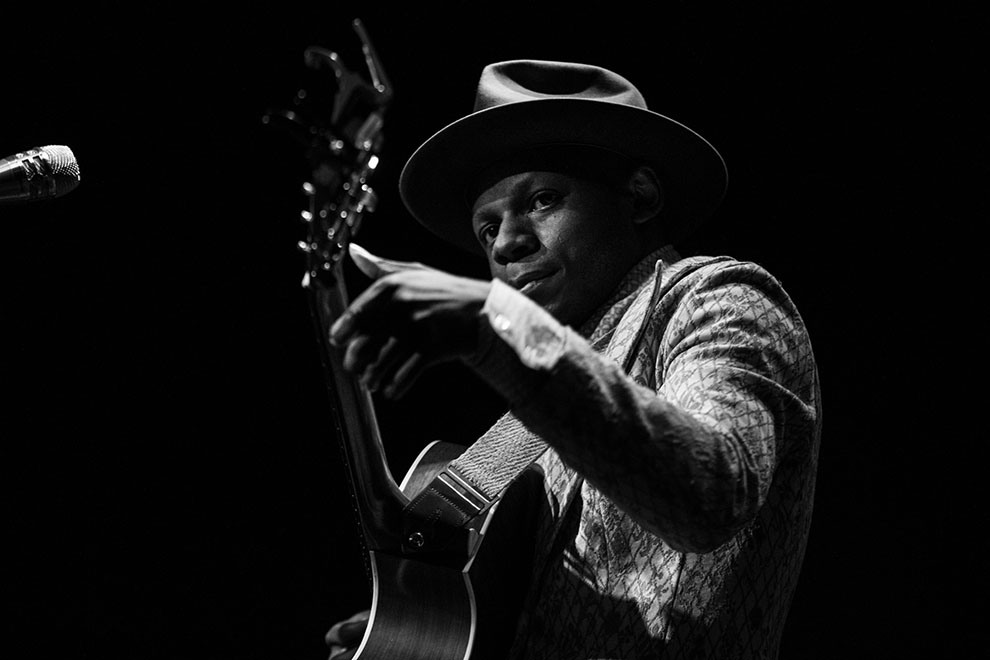
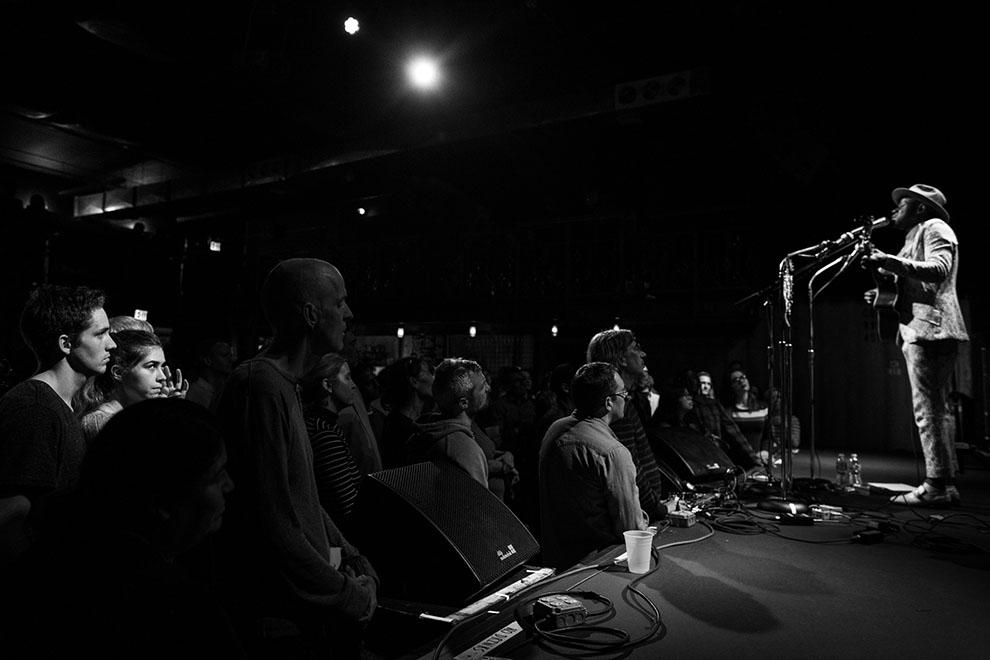
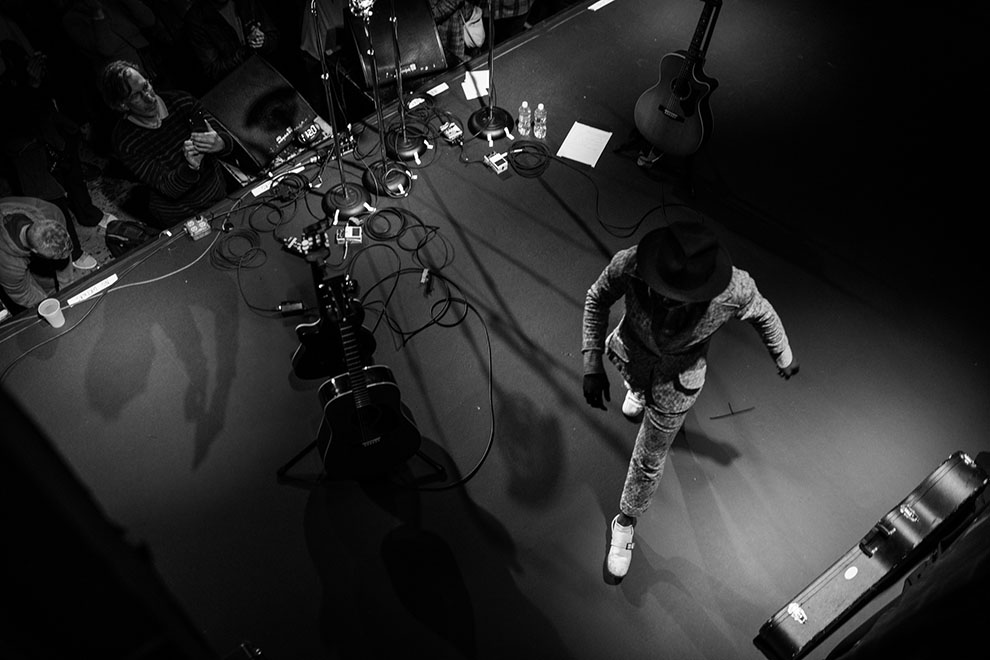
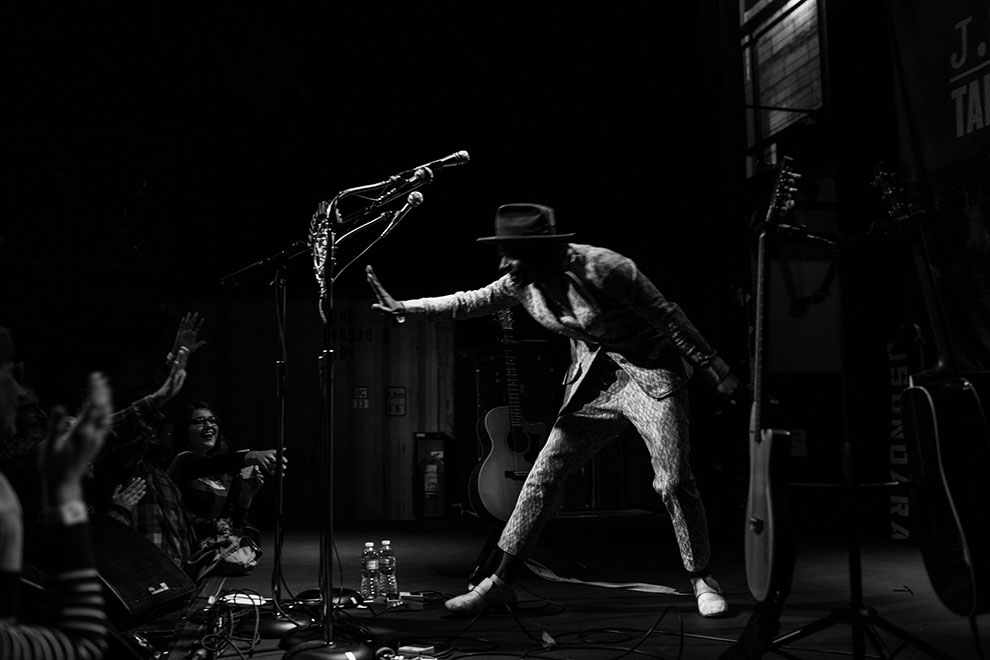
Friendly, funny and accessible, he was fully present and engaging as a performer—and then he was gone, back on the road.
This photoessay is the fourth installment in On The Road, a series of visual essays that explores the creative lives of notable musicians, onstage and off.
